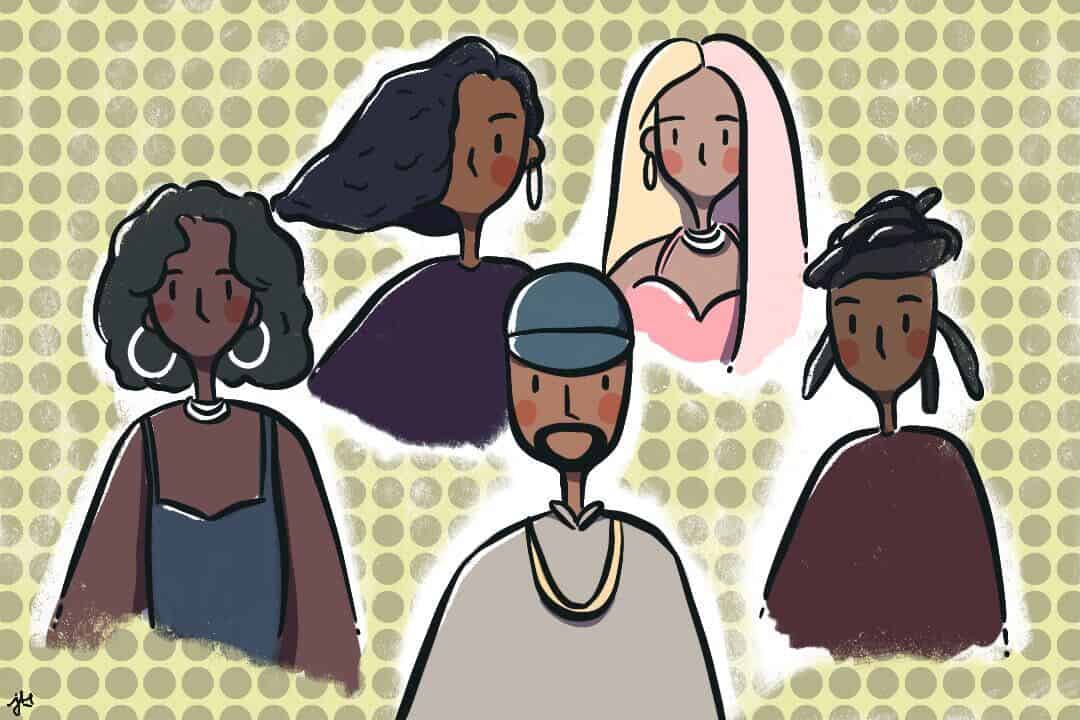Being raised in Oakville, Ontario — a predominantly white, suburban town in the GTA — by African parents that were not huge fans of rap music meant that, for the majority of my childhood and adolescence, I was not very immersed in rap culture. Top 40 pop songs and hall party Afrobeats comprised the majority of what I listened to. It wasn’t until I came to university that I precisely discovered what I’d been missing out on. My most listened-to artists on Spotify changed seemingly overnight from Ariana Grande, Beyoncé, and the like, to Megan Thee Stallion, 21 Savage, and Migos — and, obviously, still Beyoncé.
What excites me so much about the genre is the way it makes me feel — I am never more confident or having more fun than when I am listening to rap. There’s something addictive and invigorating not only about the pounding bass and the lyricism, but in the knowledge that hip hop was made by and for the Black community. Since its inception in the Bronx in the ’70s, rap has skyrocketed to become one of the most popular genres of music and has continued to push boundaries in terms of creative freedom, artistry, and as an outlet for political protest and intra-communal discourse.
With all this being said, listening to rap — especially at full volume with my windows down or blasting in my headphones as I’m walking to my classes — brings with it a sense of occasional cognitive dissonance. Listening to rap as a Black woman, I’m constantly exposed to lyrics like “Man, she keep on b*tchin’, all that naggin’ and sh*t / H*e shut the f*ck up and just gag on this d*ck” in NLE Choppa’s “Camelot”; “I sent that girl a DM / She ain’t answer me so I gotta shoot two at her,” in Lil Uzi’s “Futsal Shuffle 2020”; “Take a n*gga b*tch and then I pass her to the clique” in YBH Nahmir’s “Bounce Out With That”; and so many more.
First, I must acknowledge that the presence of these misogynistic lyrics does not mean that I agree with the instantaneous rejection or denial of the artistic merit of these songs. I strongly believe in the power of media literacy and critical engagement with art; it is the only thing that allows me to thoroughly enjoy all of the songs mentioned — I pulled all of them straight from my liked songs on Spotify — but also to acknowledge the ways in which the language they use to describe women, including sex with women and violence against women, is harmful to me as a Black woman.
While these lyrics are being used artistically, and I’m not suggesting that they should be taken literally, they nonetheless disclose certain prejudices that are prevalent within the Black community — namely, that women are akin to property that can be passed around and manipulated at will, or that we exist to serve the male sexual agenda.
Two other areas in which hip hop falls short are its casual ableism and homophobia. From “You crazy? B*tch I’m r*tarded” in Cardi B’s verse on “Shake It” and “I cannot vibe with q*eers” in Offset’s verse on “Boss Life” to the use of the f-slur and d-slur by several rappers, including Eminem and Lil Wayne, there has historically been a cavalier disregard for rap listeners who may be disabled, part of the LGBTQ+ community, or both.
While Black female rappers — such as Megan Thee Stallion, Nicki Minaj, the City Girls, Latto, Flo Milli, etc. — and Black LGBTQ+ rappers — Young M.A, Tyler the Creator, Lakeyah, Saucy Santana, Lil Nas X, etc. — can be said to be posing a sort of counter resistance to misogynistic and homophobic rappers through their own commercial success within the industry, the fact remains that much of mainstream hip-hop continues to perpetuate discriminatory ideology shared by the larger Black community that do not experience further marginalizations from a disability, LGBTQ+ identity, neurodivergence, and more.
With rap being such a quintessential genre of music and having become one of the genres that have launched Black artists into the entertainment industry on such a massive scale, it is of the utmost importance that we consider the themes, images, and expressions used in modern rap and their potential to alienate certain members of the Black community. Although I wholeheartedly love rap and will never stop defending it from naysayers who would have us label it a nonsensical genre with no artistic merit, I must also acknowledge the ways in which it has been alienating and disconcerting to hear discriminatory lyrics that hinder my enjoyment of my favourite songs.
The art of rapping itself is something that holds so much power — what was created as an art form over 50 years ago continues to give its Black listeners a sense of boldness, fearlessness, and power that I, for one, rely on to get me through the mundanity of day-to-day life. My greatest wish is for this power to be harnessed in such a way that it brings the Black community — Black people of all genders, abilities, and sexual orientations — together and allows us all to collectively revel in the celebration of our culture and talent.


